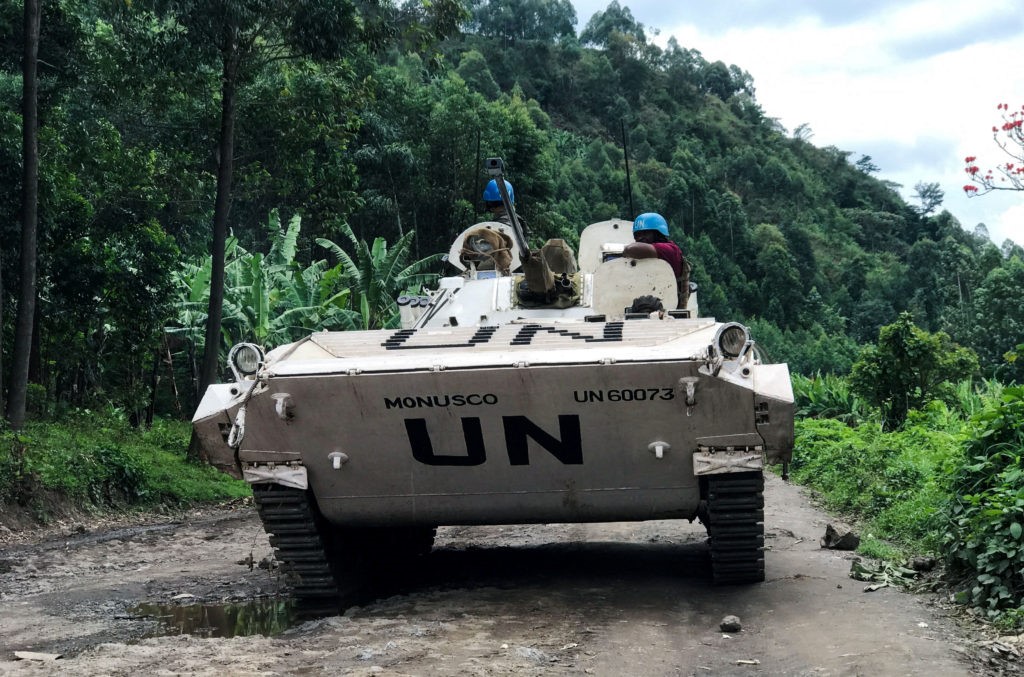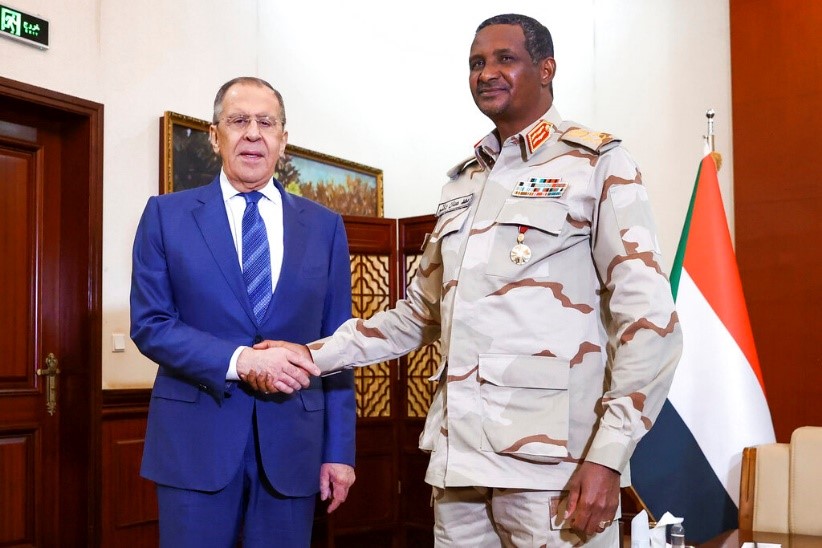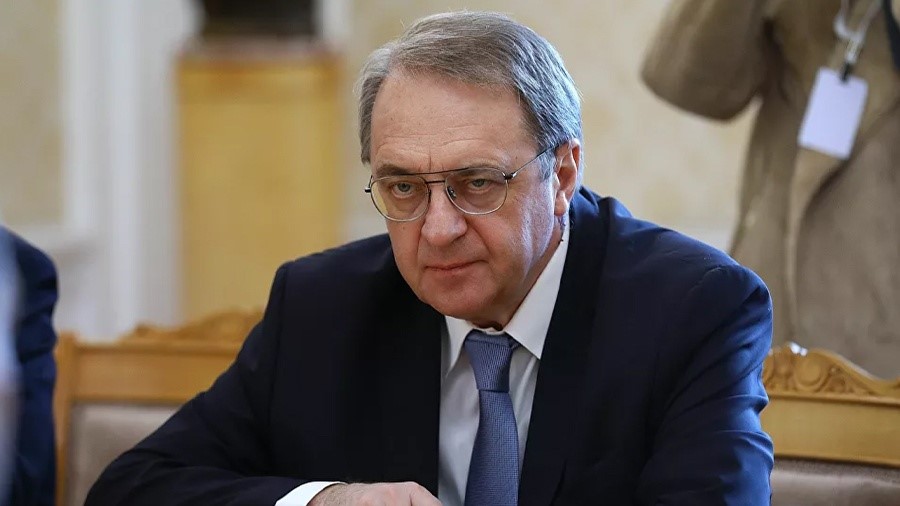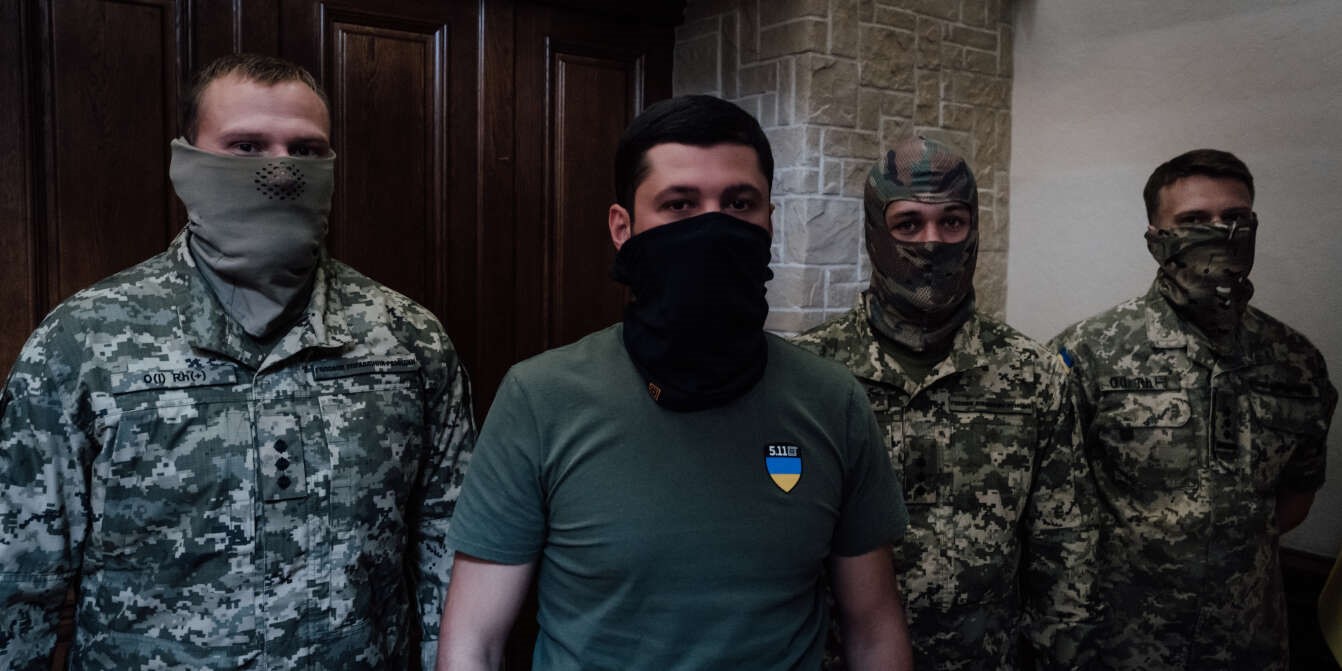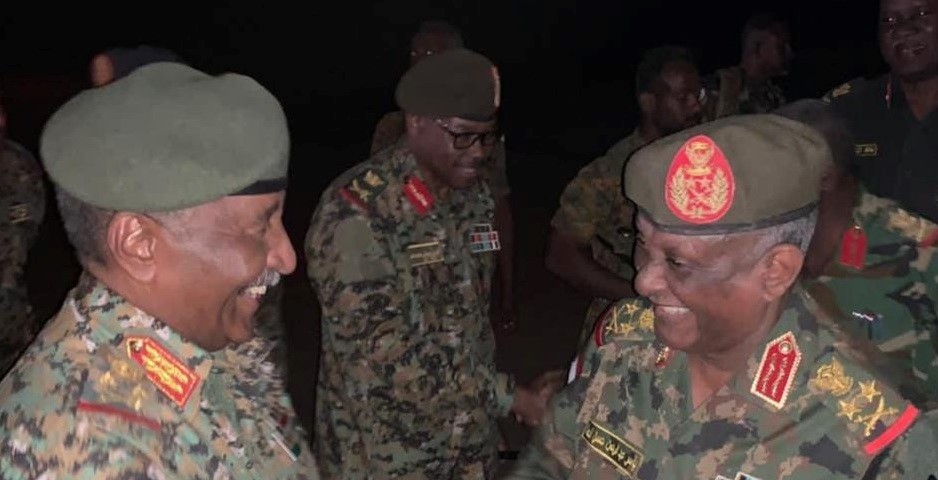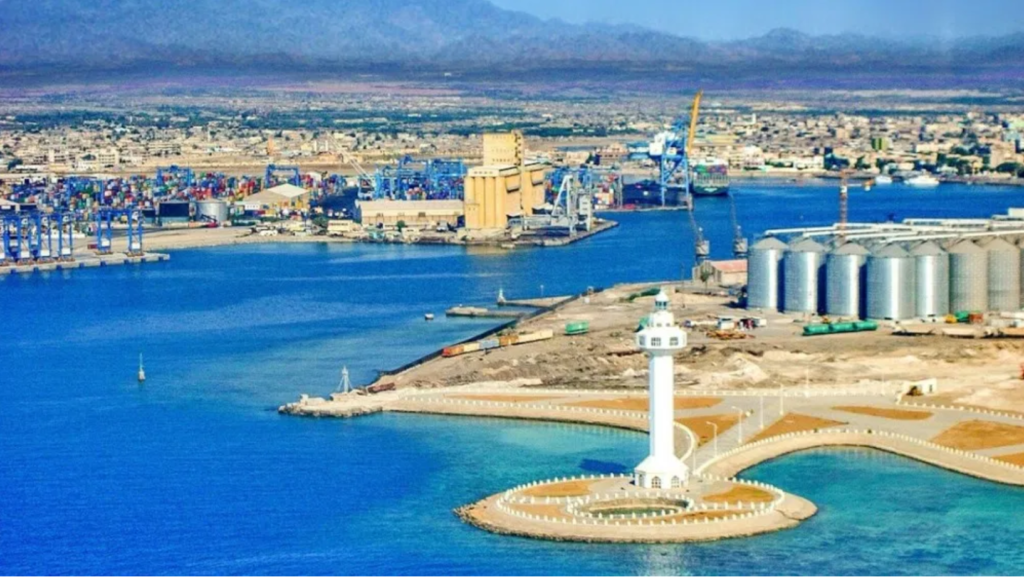Andrew McGregor
Terrorism Monitor
Jamestown Foundation, Washington DC
July 9, 2024
Executive Summary:
- The Democratic Republic of the Congo (DRC) continues to struggle to remove M23 rebels from its eastern provinces despite military aid and the assistance of UN troops and European mercenaries. The current UN peacekeeping mission is expected to withdraw by the end of 2024, likely ushering in a period of greater instability in the historically troubled state of Nord-Kivu.
- Incompetence on the part of the DRC’s army has led to a renewed reliance on European mercenaries and multilateral military operations. This has also opened the door to greater Russian involvement, with Moscow signing a military cooperation agreement with the DRC in March.
Rarely paid, barely trained and poorly equipped, the army of the Democratic Republic of the Congo (DRC) is struggling to drive M23 rebels from the eastern Congo despite the help of UN troops, European mercenaries and military assistance from neighboring states and even nations far from the fighting. The ongoing difficulties of this army, the Forces armées de la république démocratique du Congo (FARDC), have raised local concerns of infiltration or even collaboration with M23 (Mouvement du 23 mars) (AFP, March 30). To revive FARDC’s faltering offensive spirit, Kinshasa has now reintroduced capital punishment sentences in its military courts. On May 3, eight soldiers, including five officers, were sentenced to death for cowardice and “running away from the enemy” (Agence de Presse Africaine, May 4).
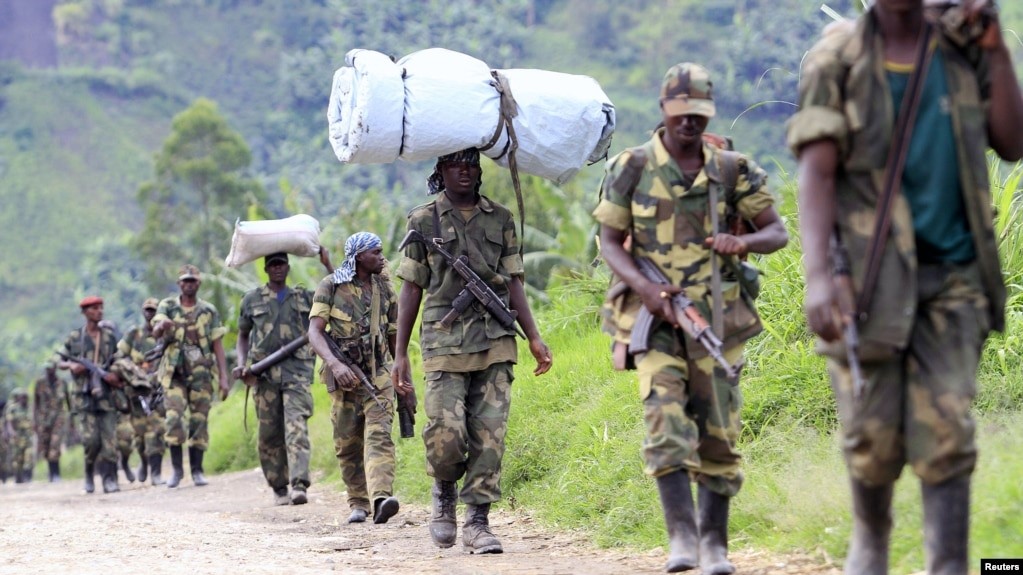 M23 Troops Advance in Nord Kivu (VOA)
M23 Troops Advance in Nord Kivu (VOA)
Formed in 2012 from ethnic Tutsi in the eastern state of Nord-Kivu, M23 receives support from Tutsi-ruled Rwanda as a means of fending off the Kinshasa-backed Forces Démocratiques de Libération du Rwanda (FDLR), a Hutu-based Rwandan armed opposition movement promoting the lethal ideology behind the 1994 Tutsi genocide in Rwanda (Le Monde, March 20; Great Lakes Eye [Kigali], December 28, 2022).
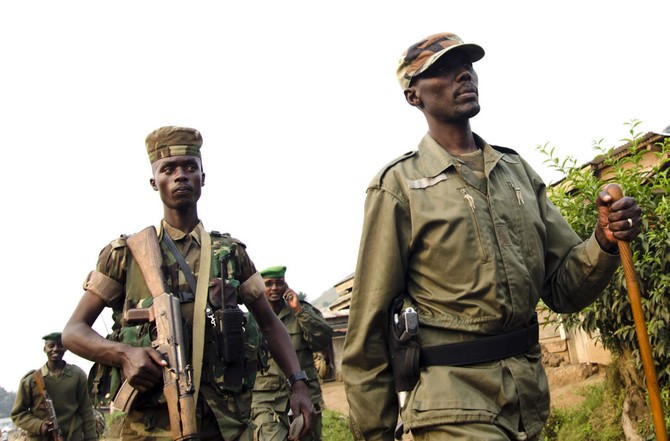 General Sultani Emmanuel Makenga (right) (Arab News)
General Sultani Emmanuel Makenga (right) (Arab News)
M23 made an earlier play for power over a decade ago under a Rwandan Tutsi, General Bosco “The Terminator” Ntaganda (jailed for 30 years by the International Criminal Court in 2019 for war crimes and crimes against humanity). M23 took the Nord-Kivu capital of Goma, but were defeated in 2013, their fighters fleeing across the border to refuge in Uganda and Rwanda. The movement began to return to the DRC quietly in 2017 under military leader Brigadier General Sultani Emmanuel Makenga. A Congo-born member of the Mugogwe sub-group of the Tutsi, Makenga helped bring Laurent-Désiré Kabila to power in the DRC in 1997 before Tutsis were ordered to leave the Congo during a general expulsion of “foreign” troops the next year (New African, February 15, 2013).
A reorganized M23 retook the offensive in eastern Congo in October 2021 after Kinshasa launched a campaign to force all armed groups in its eastern provinces to disarm and demobilize. Under pressure from the rebels, President Félix Antoine Tshisekedi Tshilombo declared in October 2022 that he would not give in to the “fashionable” trend of hiring mercenaries to combat rebellion in his country. Two months later, White mercenaries were spotted providing security around Goma airport (Great Lakes Eye [Kigali], January 19, 2023). These were the vanguard of Romanian private military company (PMC) Asociatia RALF-ROLE, composed mostly of former members of the French Foreign Legion. The mission was meant to focus on training and securing Goma’s international airport, but Romanian mercenaries have instead found themselves fighting at the front.
RALF-ROLE originally consisted of 400 fighters, but Rwanda claims there are now as many as 2,000 mercenaries from Eastern Europe in Nord-Kivu (New Times [Kigali], October 16, 2023). A 2022 decision to lift a long-standing arms embargo on the DRC allowed a free flow of arms for the mercenaries, who are paid $5000 per month (Observator [Bucharest], February 9). The local habit of referring to the Romanians as “Russians” initially created many false reports of a Wagner presence in Nord-Kivu. Unlike Wagner’s connections to the Kremlin, Romanian authorities have made it clear there is no state involvement with the Romanian mercenary group (Observator [Bucharest], February 9).
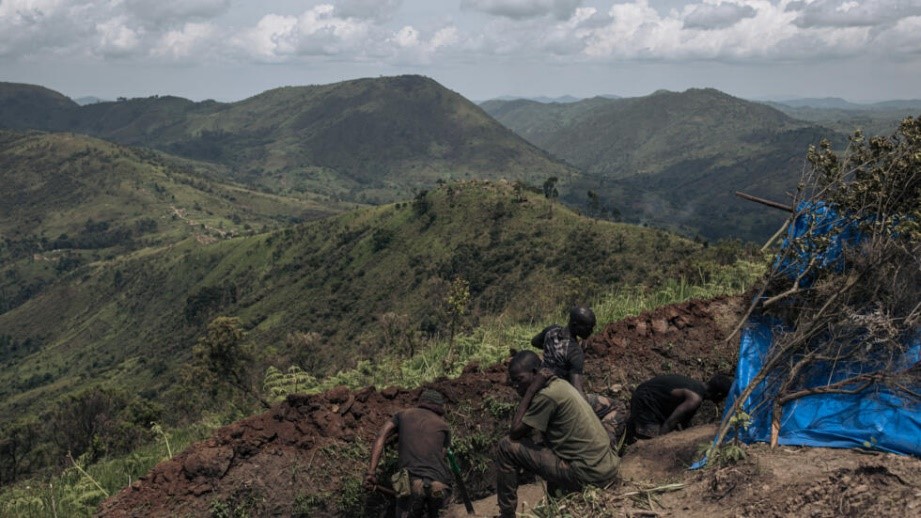 FARDC Defensive Position (AFP)
FARDC Defensive Position (AFP)
Nonetheless, there are indications that the Kremlin is seeking a military entry to the DRC; on March 5, Russia’s Defense Ministry signed a military cooperation agreement with Kinshasa. The pact provides for joint military exercises, military training and visits by warships and military aircraft (TASS, March 5; Digitalcongo.net, March 6). FARDC’s aging air assets are currently flown by Georgian and Belarussian pilots, while their maintenance is in the hands of Bulgarian PMC Agemira (Deutsche Welle, January 17, 2023; Jeune Afrique, July 28, 2023).
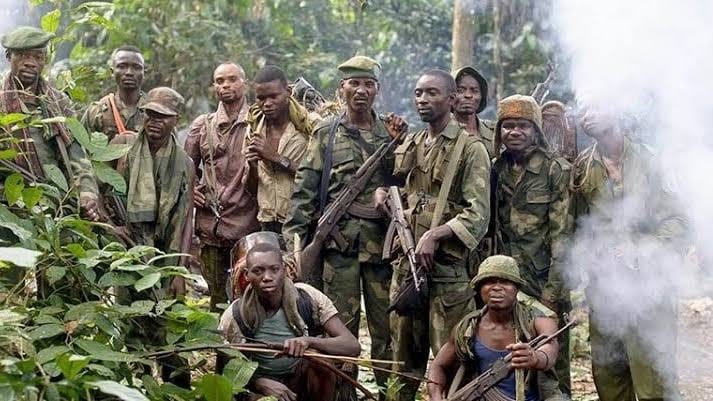 Wazalendo Mayi Mayi (Congo Indépendant)
Wazalendo Mayi Mayi (Congo Indépendant)
Corrupt and undisciplined, FARDC is supported not only by the Hutu FDLR and European mercenaries, but also Burundian troops and the Wazalendo (Kiswahili – “patriots”), a coalition of Mayi Mayi militias and other pro-government armed groups formed by FARDC in May 2023 (Africa Defense Forum, January 16). The Mayi Mayi are local Congolese militias ostensibly engaged in a struggle for indigenous rights, but better known for drug-fuelled rampages against villagers involving rape, looting and murder (see Terrorism Monitor, April 3, 2014).
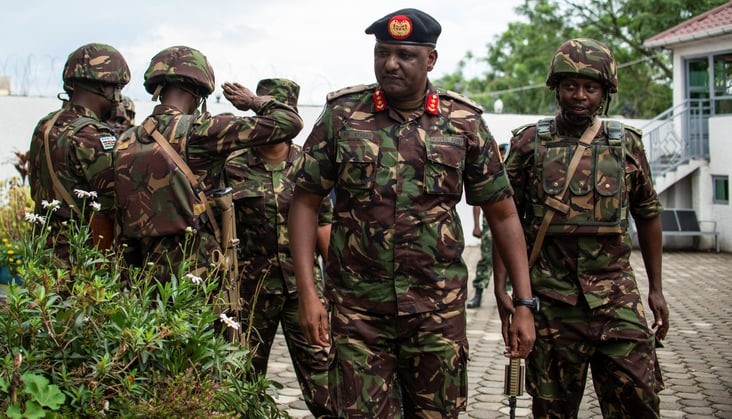 EACRF Commander General Jeff Nyaga
EACRF Commander General Jeff Nyaga
The incompetence of FARDC forces Kinshasa to seek defenders abroad. The East African Community Regional Force (EACRF – Burundians, Ugandans, Kenyans and South Sudanese) deployed in Nord-Kivu in November 2022 during M23 advances, but withdrew its last troops in December 2023 after the DRC declined to renew its mandate (East African [Nairobi], December 21, 2023). Only months into their mission, EACRF faced threats in Goma from demonstrators who accused the force of failing to take the fight to M23, though their mandate called for an offensive only as a last resort (Great Lakes Eye [Kigali], March 21, 2023; DRC News, May 16, 2023). EACRF’s Kenyan commander, General Jeff Nyaga, resigned in April 2023, complaining of intimidation from “foreign mercenaries” (Kinshasa Times, April 28, 2023). Nyaga was accused by the Congolese of “peaceful cohabitation” with M23 and Rwandan troops in Kivu (Kinshasa Times, May 3, 2023). Dissatisfaction with EACRF’s performance may have motivated Tshisekedi to intensify his recruitment of mercenaries.
About 1,000 Tanzanian, Malawian and South African troops belonging to the Southern African Development Community Mission in the Democratic Republic of Congo (SAMIDRC) began to arrive as replacements for EACRF in December 2023, but deployment has been slow and six men have already been lost to M23 mortar fire (DRC News, April 3; Kinshasa Times, April 9). SAMIDRC is led by South Africa’s Major General Monwabisi Dyakopu, who fought M23 in 2013.
Also active in Nord-Kivu are UN peacekeepers of MONUSCO (Mission de l’Organisation des Nations Unies pour la stabilisation en République démocratique du Congo), the UN’s largest and most-expensive peacekeeping mission. First deployed in 2000, MONUSCO now operates alongside FARDC to defend the Nord-Kivu cities of Saké and Goma (DRC News, March 13).
Though remote and impoverished, Nord-Kivu’s extraordinary mineral wealth continues to draw armed groups like moths to a flame. As with most long-term conflicts, many of the varied participants in the struggle for Nord-Kivu have found ways to profit from its extension rather than its resolution, discouraging any foreseeable improvements in security.

